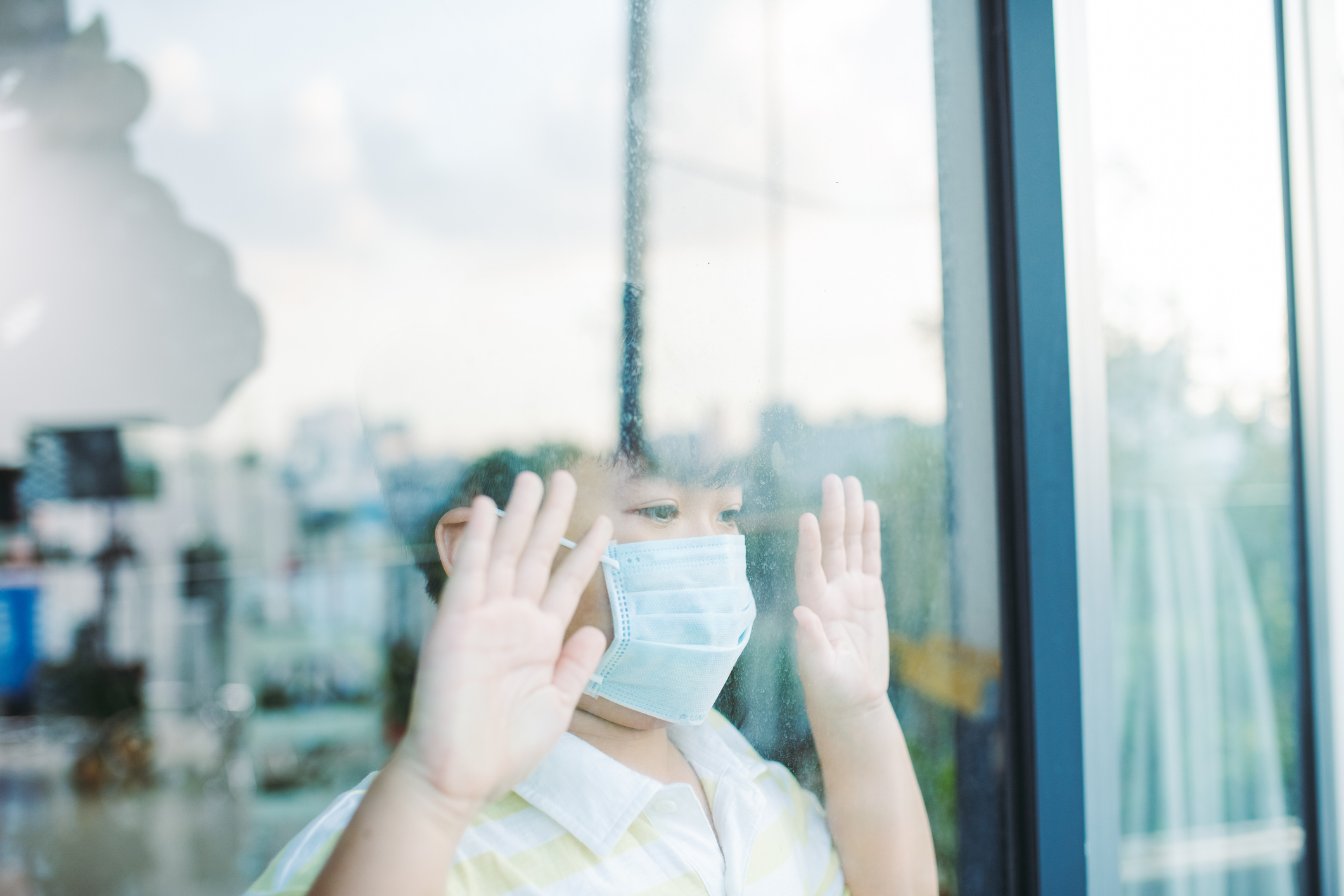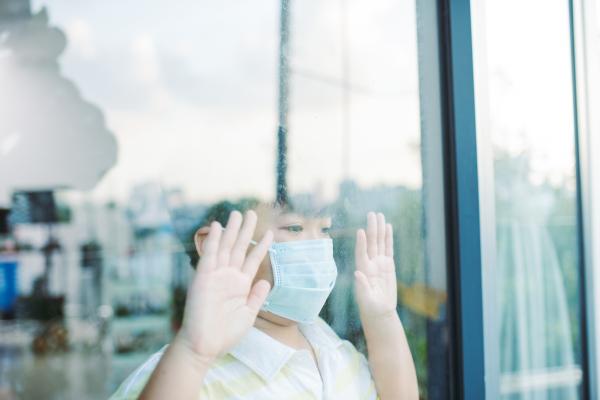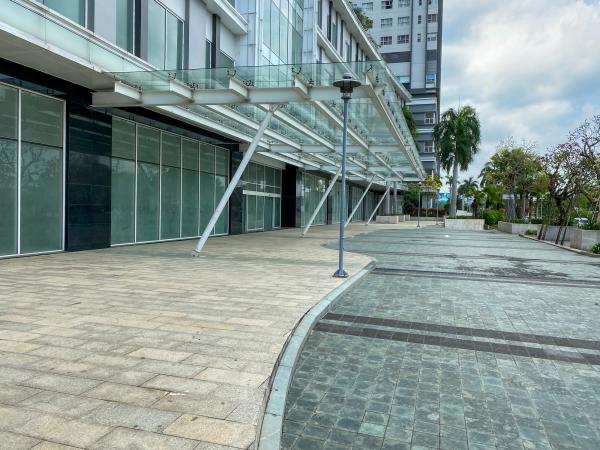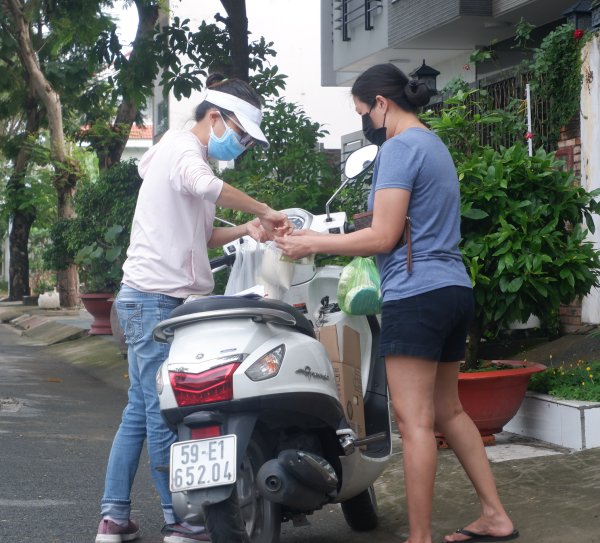KID REPORTERS’ NOTEBOOK
Coping With the Pandemic in Vietnam


In Vietnam, a strict lockdown in 2021 forced the closure of schools and businesses, but helped slow the spread of COVID-19.
I live in Vietnam, a country of 96 million people in Southeast Asia. In the past two years, daily life has been disrupted by the coronavirus pandemic, as it has in most countries. Since the pandemic was declared in March 2020, there have been more than 10.5 million COVID-19 infections reported in Vietnam. More than 41,000 people have died as a result of the infectious disease.
Early in the pandemic, people in Vietnam were required to wear masks and remain socially distant to slow the spread of the virus. In May 2021, when the number of infections rose, a voluntary lockdown was imposed. Non-essential businesses, including restaurants, were closed.

In the summer of 2021, the government of Vietnam instituted a strict lockdown to slow the spread of COVID-19.
STRICT ENFORCEMENT
In July 2021, with infections rising, the government imposed a mandatory lockdown. Besides essential workers, only people seeking food, medicine, or emergency care could go outside.
The army and police were called in to ensure that people observed the safety regulations. Checkpoints were set up on street corners, and barriers erected around neighborhoods with high infection rates. Anyone who disobeyed the stay-at-home order was fined or jailed.
The lockdown was hard on people. Since most businesses were closed, families lost their paychecks. They could no longer afford food, rent, and electricity. “My whole family was scared,” said Do Huy Hoang, 13.
Many Vietnamese people wondered whether the measures were effective. Despite the lockdown, noted Le Quoc Hoang, 13, “my whole family still got infected.”
To help residents cope, the government reduced the cost of food, electricity, and other essentials. Portable medical clinics were set up in neighborhoods, and members of the military helped deliver food.
“I was scared to buy groceries during the lockdown,” said my neighbor, Nguyen Thi Le Ha. “Even now, I’m still scared.”
“Our neighborhood leader brought free food to our house,” said Pham Bao Minh Duy, 13. Other kids reported that their families received financial help as well as food donations.
The lockdown, which helped slow the spread of the virus, was lifted on October 1, 2021. Thereafter, people could go outside, return to work, and order take-out meals from restaurants. However, schools remained closed, and masks and social distancing were still required in public places.
Today, with about 70% of the population vaccinated, schools and businesses have reopened, and restaurants allow indoor dining.

In Leo’s neighborhood in Ho Chi Minh City, residents delivered groceries to neighbors during the lockdown.
WORKING TOGETHER
Amid the hardships and fear, people in my neighborhood in Ho Chi Minh City helped each other. When the lockdown was over, I met my neighbors for the first time and got to know their names. Before the pandemic, we had rarely spoken.
My father, a canteen (small restaurant) owner, bought food from his suppliers and sold it to our neighbors at the same price. Others in our community pitched in to help.
“At first, I just wanted to work again, so I helped,” a neighbor told me. “But I realized we were helping a lot of people, who were now able to buy food. We kept the neighborhood safe. I'm proud of being a part of the effort.”
People also planted vegetables for themselves and their neighbors. “This community is a life-saver for my family,” said one neighbor. “I’m very thankful for everyone.”

Some of Leo’s neighbors planted vegetable gardens during the pandemic.
FEELING SAFER
While my neighbors worked together to keep people safe, other communities struggled. The number of infections and deaths in my grandmother’s neighborhood, for example, rose dramatically. As a result, she came to live with us. “I panicked when more people around me got infected and died,” she said. “Here, I feel peaceful. Neighbors helping each other made the lockdown easier.”
My grandmother brought another visitor with her—a toddler who is too young to be vaccinated. I now spend my free time babysitting. I don’t mind as long as he’s not screaming.
